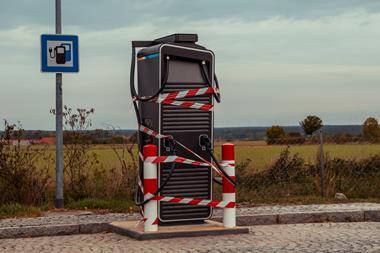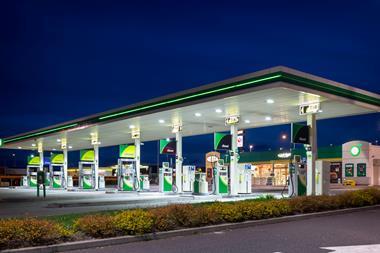The fuel retailing industry has been accused of ‘short-changing’ motorists by failing to reflect the recent fall in wholesale fuel prices at the pump – despite the threat of an Office of Fair Trading investigation.
In its latest fuel price report, the AA reveals that the average UK petrol price between mid October and now has fallen 3.87p a litre, from 138.95ppl to 135.08ppl. Diesel prices are down 1.85ppl, from 143.74ppl to 141.89ppl.
“Across Europe, the wholesale price of petrol has fallen from around 54ppl at the beginning of October to around 45ppl by the end,” says the report.“With VAT, this should have knocked average UK petrol prices down by 10ppl to 11ppl. However, after reaching a plateau of around 139ppl in mid October, UK petrol pump prices were down by less than 4ppl by the start of this week (November 12).”
The report said a similar situation occurred six months ago, when the value of wholesale petrol across Europe had fallen $220 a tonne between mid April and the first week of May –the equivalent of 11p-12ppl at the pump with VAT. However, by mid May, only 4ppl of the saving had been passed on at the pump.
Since early October, according to the price report, the wholesale price of unleaded with ethanol has fallen from around 53ppl to around 45ppl at the start of November – equivalent with VAT to a 10ppl drop at the pump.
The wholesale price of diesel with biofuel fell from around 56ppl in early October to around 52ppl at the start of November – equivalent with VAT to a 5ppl drop at the pump. However, average diesel pump prices have fallen only 1.85ppl between mid October and mid November (changes in wholesale prices typically take 10-14 days to be reflected at the pump).
The report also reflected on the return of the fuel price postcode lottery – whereby price of the same fuel in different cities could vary by as much as 5ppl.
It reveals that on Monday (November 12), drivers in the New Ollerton/Newark area were once again paying 5ppl more for supermarket petrol compared to 11 miles down the road in Mansfield – as were drivers in Dover compared to Canterbury 18 miles away. In Aylesbury, despite councillors complaining to their local supermarket, the price gap between the town and Milton Keynes had returned to 4p-5ppl on Monday.
“It should beggar belief that, after the trauma of high fuel prices in the spring, the same thing should happen again six months later," said Edmund King, the AA’s president. But we are talking about the fuel industry. Even the Petrol Retailers Association can see the sensitivity of the situation, issuing a press release last week trying to point the blame for high fuel prices elsewhere, but rightly pointing out that many of its members are charging less than supermarkets.
“Recent political focus has been on the 3.02p-a-litre fuel duty increase, scheduled for January 1, either ignoring or unaware that duty’s ugly sister – unrestrained wholesale prices – has been running rampant in the fuel market," stressed King.
“The Government momentarily had a grip of this monster when the previous Transport Secretary called in the industry to agree wholesale price transparency. This initiative stalled when the Office of Fair Trading called for information on road fuel pricing – to which the industry has responded by pumping up wholesale prices and then not passing on cost savings in a timely fashion.
“The average UK domestic energy bill is £1,252, but the cost of fuel for the average car consuming 1200 litres a year is over £1500. This week the Government said it was going to tackle high gas and electricity bills, yet lets drivers and businesses down by not reacting swiftly to runaway wholesale and pump prices.”

































No comments yet